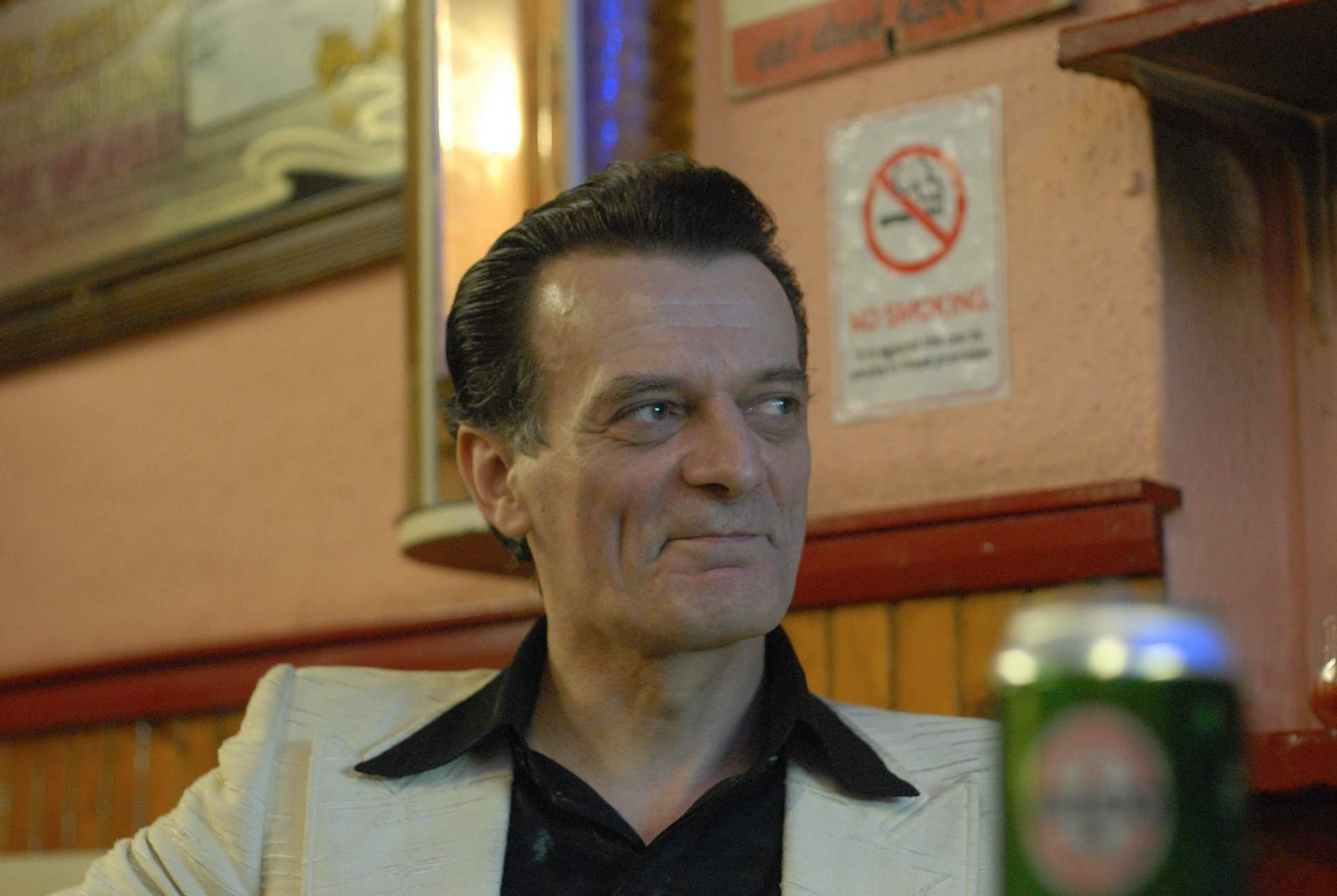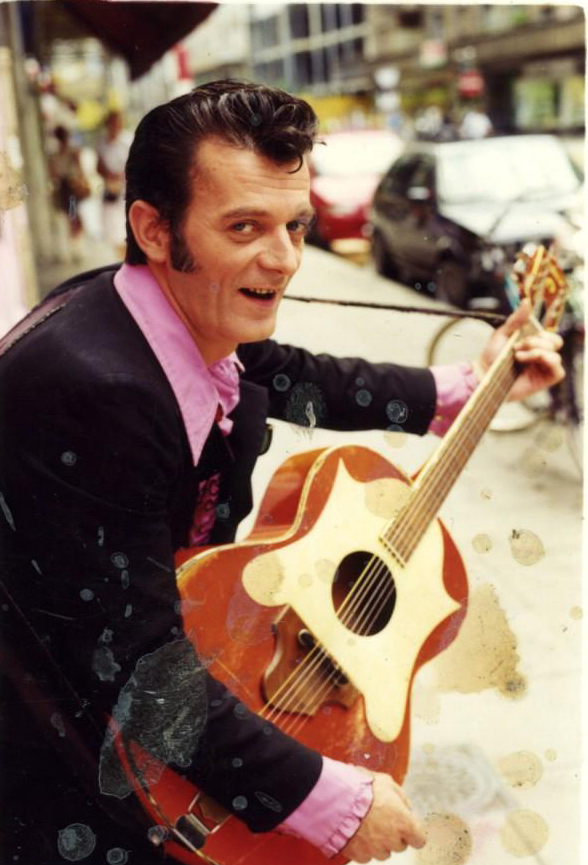Daniel Jeanrenaud, the tube guitarist who'll never get bored of playing Ring Of Fire
Josh Loeb meets the man playing Johnny Cash in the Marathon kebab house and a tube train near you
Thursday, 24th September 2009 — By Josh Loeb

ANYONE who has ever stumbled into The Marathon kebab house at around midnight of a misspent work night will have found themselves in the presence of a musical legend.
Not Amy Winehouse – although she was a regular in the late-night hangout before moving back to Barnet to detox.
Not Liam from Oasis or Jack from the White Stripes, nor even Led Zep’s Robert Plant – although all have put in appearances at the joint over the years. Rather, it is the man with the jet black hair and the vintage guitar, singing Elvis, Johnny Cash and Chuck Berry covers.
His name is Daniel Jeanrenaud and he hails from “Marseille, Tennessee – next to Paris, Texas”. Since 1997 he has been “taking Napoleon’s revenge with the guitar” by rocking the boozed-up crowd at the Chalk Farm eatery, above which he lived for a short time. “It was,” he says, “the perfect home for a musician. What other landlords say you can play rock music loudly until 3am?”
In June, after it was found breaching licensing rules, Camden Council served The Marathon with a notice that its operations faced a review, raising the spectre of closure for the bohemian venue. It has recently had its opening hours dramatically slashed – a decision it is appealing.
Daniel, who has accused the council of “cracking down on those of us who want to have a good time,” says he has “a love hate relationship” with The Marathon, which had previously been allowed to stay open until 4am.
“It becomes too much sometimes,” he says. “It’s been twelve years now. How many Johnny B. Goodes, how many Lonesome Hearts is that?”
Asked if he is sick of playing them, Daniel says: “Not physically”.
The 50-year-old musician, who spoke to the New Journal in The Spaghetti House in Tufnell Park, where he gives regular, impromptu gigs, remembers many a wild night at The Marathon, which he says is calmer now than it once was. “When I first played there it was like a saloon,” he says. “The crowd’s better these days.”
Among his celebrity anecdotes, Daniel recalls helping Winehouse – who always used to request he play “Stuck on You” by Elvis – break into her own flat in Camden Town after she misplaced her keys. And he remembers Robert Plant, who popped in for a doner after playing the Roundhouse, talking about meeting The King himself.
“Elvis spent four hours with Led Zep,” Daniel says, “and he kept talking about the blues. He was so genuine. I always suspected that, but it was nice to have it confirmed by someone who’d met him.”
The son of a Pentecostal minister, Daniel was raised in a strict Christian environment in France. Records were banned in the house, but he heard music in church – “one of those gypsy-guitar players, Django Reinhardt-style. Immediately I wanted to play the guitar.”
He has lived in Paris, Switzerland and America, and turned to busking after The Kingsnakes – a band he formed in San Francisco in 1978 with two ex-members of cult punk outfit the Flaming Groovies – split up. As well as playing in The Marathon and the Spaghetti House, he entertains passengers in Northern Line Tube carriages. “They’re caught in a trap,” he explains, “and they can’t walk out. Until they give me their cash.”
Daniel says he has tried other jobs – as a waiter, a limo driver, and a door-to-door vacuum cleaner salesman – but that he was always sacked.
“I’m not lazy,” he explains, “but my mind is obsessed with music.”
The Kingsnakes never had any hit records but toured widely. “We did everything rock stars do, even break things – except we didn’t have the money to pay for them.”
Eventually they were signed by EMI and started making big bucks – and promptly broke up, citing a disagreement with their manager.

Daniel is now hoping for success as a solo artist.
He recently supported David Gray at the Roundhouse and will be doing so again on Gray’s UK tour. He has recorded his debut solo album Get Up, due for release soon.
But regardless of whether he hits the big time as a soloist, he says he intends to keep playing The Marathon as long as he can.
“In Harlem, when the great jazz pioneers of the golden age, like Louis Armstrong, Duke Ellington and Ella Fitzgerald, started playing, they had residencies in clubs and restaurants seven nights a week. This type of music, whether it’s jazz, blues or popular dance music or rock-and-roll, works better in smaller venues. In The Marathon, the sound is bad and there’s no stage so people are right in your face, but it creates something intimate.”